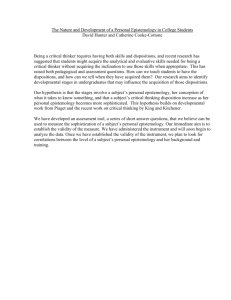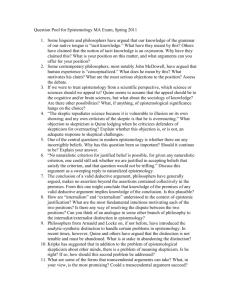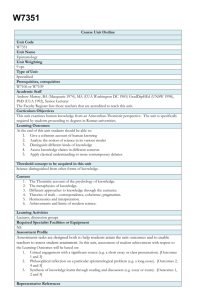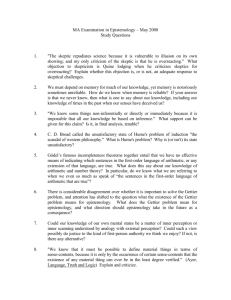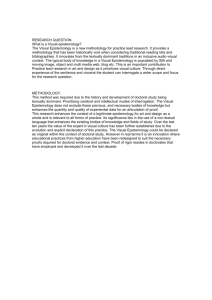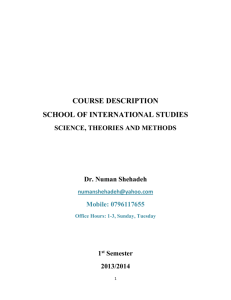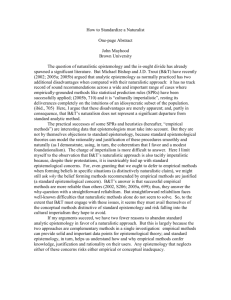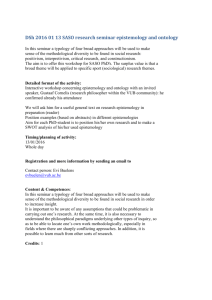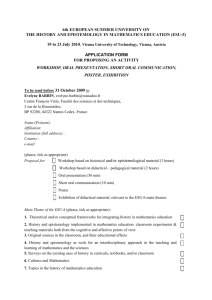MA EXAMINATION IN EPISTEMOLOGY—SPRING 2006
advertisement
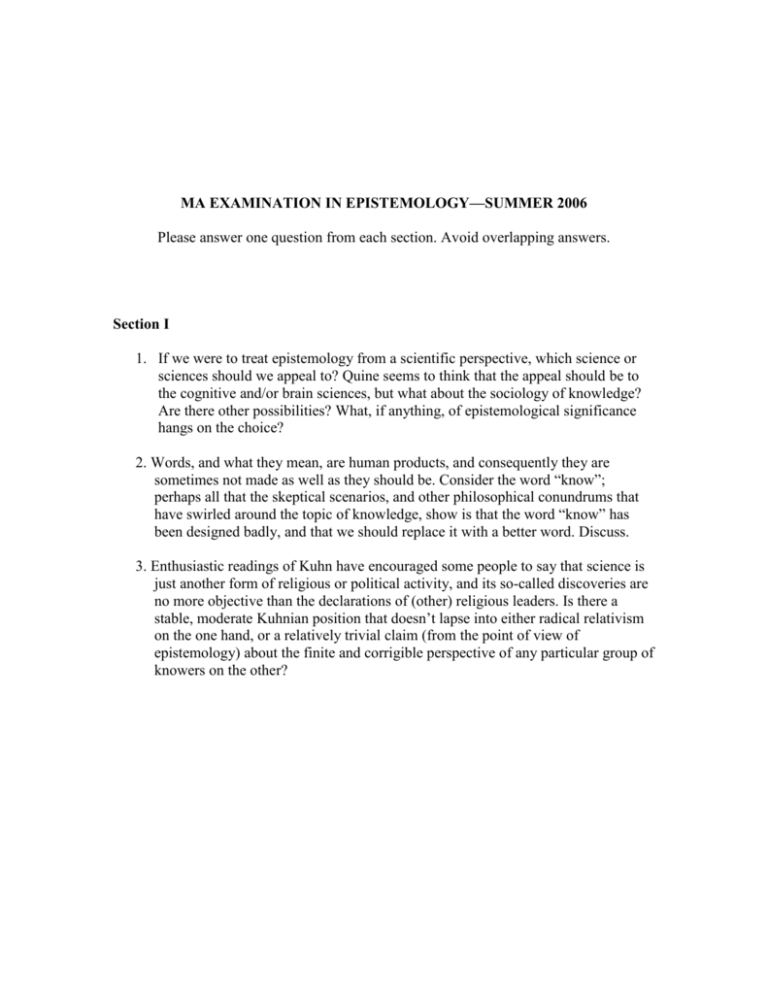
MA EXAMINATION IN EPISTEMOLOGY—SUMMER 2006 Please answer one question from each section. Avoid overlapping answers. Section I 1. If we were to treat epistemology from a scientific perspective, which science or sciences should we appeal to? Quine seems to think that the appeal should be to the cognitive and/or brain sciences, but what about the sociology of knowledge? Are there other possibilities? What, if anything, of epistemological significance hangs on the choice? 2. Words, and what they mean, are human products, and consequently they are sometimes not made as well as they should be. Consider the word “know”; perhaps all that the skeptical scenarios, and other philosophical conundrums that have swirled around the topic of knowledge, show is that the word “know” has been designed badly, and that we should replace it with a better word. Discuss. 3. Enthusiastic readings of Kuhn have encouraged some people to say that science is just another form of religious or political activity, and its so-called discoveries are no more objective than the declarations of (other) religious leaders. Is there a stable, moderate Kuhnian position that doesn’t lapse into either radical relativism on the one hand, or a relatively trivial claim (from the point of view of epistemology) about the finite and corrigible perspective of any particular group of knowers on the other? Section II 4. Many of Austin’s criticisms of the argument from illusion turn on what appear to be correctable lapses on the part of Ayer and others. Is there any way of reformulating the argument so as to avoid Austin’s criticisms? 5. When skeptical hypotheses—e.g., the dreaming hypothesis or the evil demon hypothesis or the brain-in-the-vat hypothesis—are put forward, they are almost invariably accompanied by the claim that they are completely consistent with our experience. What does a philosopher mean when he or she says this? What can be done to show that this is, or is not, correct? 6. When G.E. Moore tries to refute the sceptic by showing her his hands, has he missed the point? Section II 7. Nearly all epistemologists accord a central role to observation. Even confirmation holists (such as Quine) take observation as crucial. Some time ago, Feyerabend, and more recently, Fodor, have argued that giving such an epistemic role to observation is misguided. “Observation,” is a psychological term, and not an epistemological one. “Evidence,” is an epistemological term, and “evidence” need not be composed of observations. What is the role of observation in knowledge acquisition and justification? 8. Many philosophers before recent times considered geometry as an exemplar of knowledge. Does geometry provide us with knowledge of necessary truths, or even truths about the world? If so, how? If not, why not? 9. Does science show that we never directly perceive objects?
